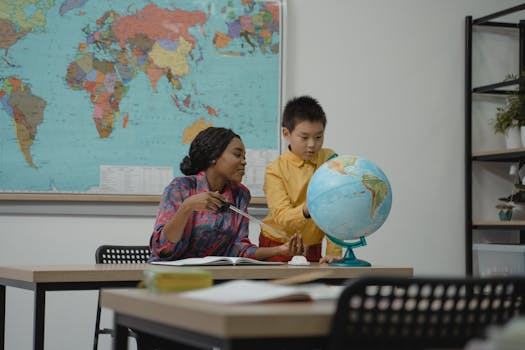Educational Rights and Legal Protections in a Changing World
In today’s rapidly evolving world, education is a crucial aspect that plays a significant role in shaping an individual’s future. However, with changing times, the educational landscape has also undergone dramatic transformations. It is essential for individuals to keep themselves updated on not only their educational rights but also the legal protections in place to ensure those rights are upheld. In this article, we will delve into the topic of educational rights and legal protections in a changing world, and understand why they are of utmost importance in today’s society.
The Evolution of Educational Rights
Education is a fundamental right that is enshrined in the Universal Declaration of Human Rights. It states that everyone has the right to education, and that education should be accessible to all regardless of age, gender, religion or ethnicity. Over the years, this right has evolved to include not just primary and secondary education, but also higher education and the right to lifelong learning.
However, the concept of educational rights did not always exist. It was only in the 19th and 20th century that governments began to recognise the importance of education and started implementing policies to promote universal access. Today, almost every country has laws in place to ensure that education is a right for all individuals.
The Importance of Educational Rights
Education is not only crucial for personal growth and development, but it also has a significant impact on society as a whole. A well-educated population leads to economic growth, reduced poverty levels, and a more skilled workforce. It also promotes social cohesion, cultural understanding, and a more informed and engaged citizenry.
Educational rights are not just limited to access to education, but also include the right to quality education, which encompasses factors such as curriculum, teaching methods, and resources. When these rights are upheld, it ensures that individuals are equipped with the necessary knowledge and skills to participate fully in society and lead meaningful and productive lives.
Legal Protections for Educational Rights
To uphold the rights of individuals to education, several legal protections have been put in place by governments and international organisations. These include laws and policies that prohibit discrimination and ensure equal access to education for all individuals, regardless of their race, gender, or background.
In addition to that, there are also legal protections in place to safeguard the quality of education. For instance, laws that regulate school curricula to make sure that they meet certain standards, and policies that ensure the availability of competent and qualified teachers. There are also laws in place to safeguard the rights of individuals with special needs, ensuring that they have access to education and are not discriminated against.
Educational Rights in a Changing World
The advancements in technology have significantly changed the way education is delivered, with online learning becoming increasingly popular. This has raised questions about the implementation of educational rights in the virtual world and how to ensure equal access for all individuals. The rise of social media has also led to concerns about protecting the right to freedom of expression and ensuring that individuals are not subjected to online harassment or discrimination.
The changing political landscape in many countries has also had an impact on educational rights. Governments have the responsibility to protect and promote the right to education, and any changes in policies or regulations can have far-reaching consequences on individuals’ access to education and their educational rights.
Conclusion
Educational rights and legal protections play a crucial role in today’s increasingly interconnected and ever-changing world. It is imperative for governments and individuals to recognize the importance of education and ensure that the rights of all individuals are upheld. As the world continues to evolve, it is essential to stay informed and aware of any changes in policies or regulations that may affect our educational rights, and to advocate for their protection and preservation.









